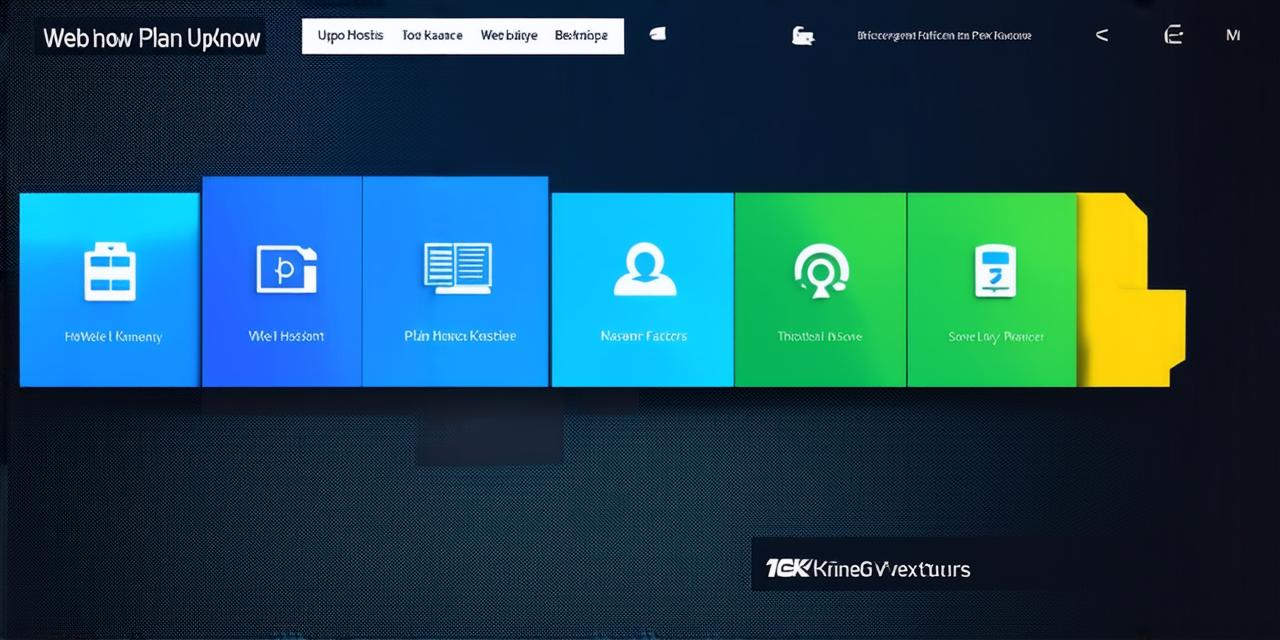Web hosting is an essential component of any website, and the right hosting plan can greatly impact the performance, reliability, and scalability of your site. For hosting developers, choosing the right web hosting plan can be a challenging task, especially when it comes to deciding whether to upgrade or not. In this guide, we will explore some of the key factors to consider when determining if it’s time to upgrade your web hosting plan.
Understanding Web Hosting Plans
Before we dive into the factors that determine when to upgrade your web hosting plan, it’s important to have a basic understanding of what web hosting plans are and how they work. At its most basic level, a web hosting plan is a contract with a hosting provider that provides you with the resources and infrastructure needed to host your website on their servers.
There are several types of web hosting plans available, including shared hosting, dedicated hosting, VPS hosting, and cloud hosting. Each type of plan has its own advantages and disadvantages, and the right plan for your needs will depend on a variety of factors, such as the size and complexity of your site, the amount of traffic you expect to receive, and your budget.
Factors to Consider When Determining If It’s Time to Upgrade Your Web Hosting Plan
Now that we have a basic understanding of web hosting plans let’s explore some of the key factors to consider when determining if it’s time to upgrade your web hosting plan.
1. Website Traffic
One of the most important factors to consider when determining if it’s time to upgrade your web hosting plan is the amount of traffic you expect to receive. If your site is experiencing a significant increase in traffic, this can put a strain on your current hosting plan, leading to slow load times, downtime, and other performance issues.
In general, shared hosting plans are best suited for small to medium-sized sites with relatively low amounts of traffic, while dedicated hosting plans and VPS hosting plans are better suited for larger sites with higher levels of traffic. Cloud hosting plans are also a good option for sites that experience sudden spikes in traffic, as they can quickly scale up or down to meet changing demands.
2. Site Size and Complexity
Another important factor to consider when determining if it’s time to upgrade your web hosting plan is the size and complexity of your site. If your site is large and complex, with a lot of multimedia content, databases, and other resource-intensive features, this can put a strain on your current hosting plan, leading to slow load times, downtime, and other performance issues.
In general, dedicated hosting plans and VPS hosting plans are best suited for larger, more complex sites, while shared hosting plans are better suited for smaller, less complex sites. Cloud hosting plans can also be a good option for sites with high levels of complexity, as they offer the flexibility and scalability needed to meet changing demands.
3. Resource Requirements
In addition to website traffic and site size and complexity, another important factor to consider when determining if it’s time to upgrade your web hosting plan is the amount of resources your site requires. This includes things like CPU power, memory, disk space, and bandwidth. If your site requires a lot of resources, this can put a strain on your current hosting plan, leading to slow load times, downtime, and other performance issues.
In general, dedicated hosting plans and VPS hosting plans are best suited for sites that require a lot of resources, while shared hosting plans are better suited for sites with lower resource requirements. Cloud hosting plans can also be a good option for sites with high resource requirements, as they offer the flexibility and scalability needed to meet changing demands.



